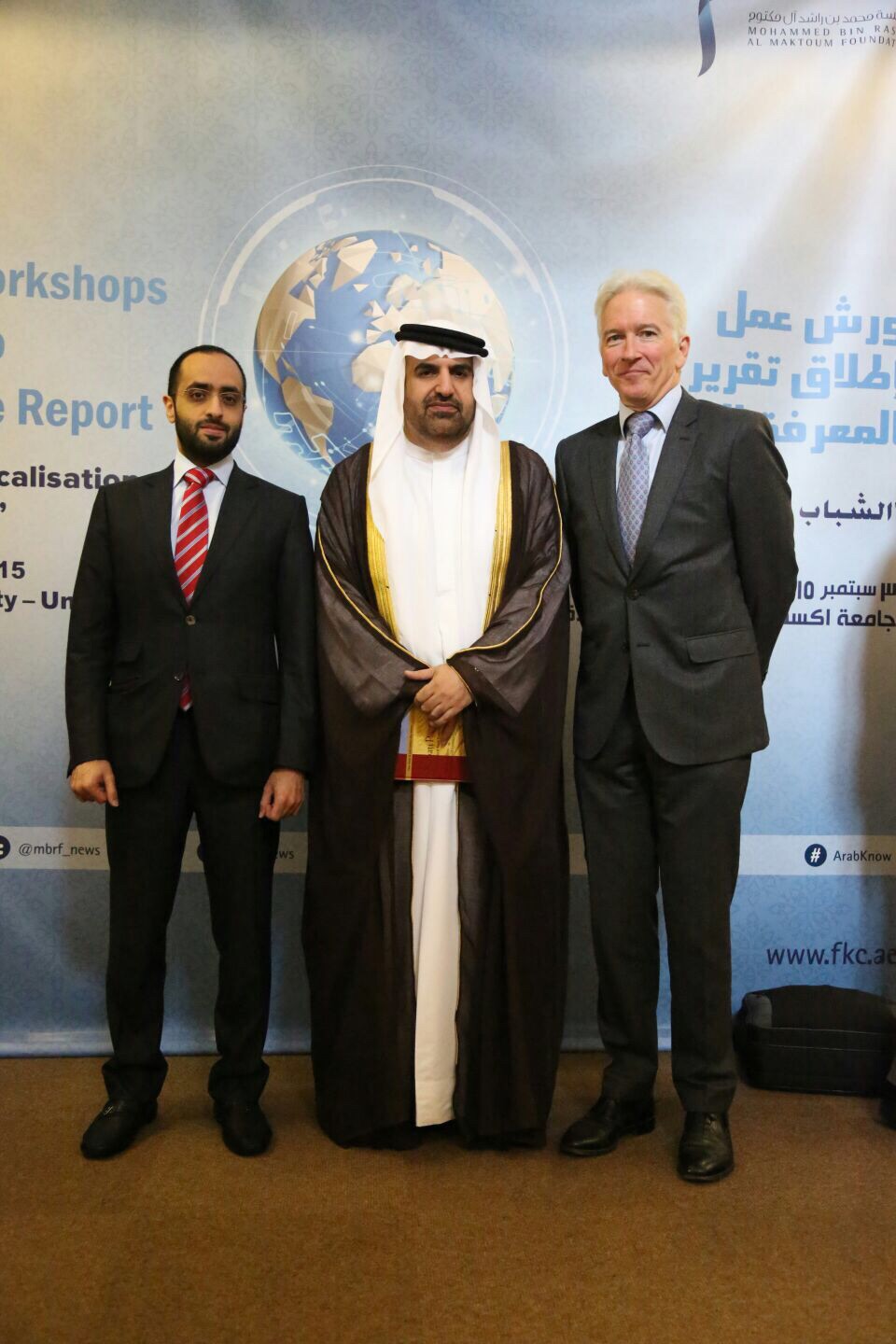
Others
MBRF Oxford workshop concludes with vibrant discussions and audience engagement on Arab Knowledge Report
Mohammed Bin Rashid Al Maktoum Foundation (MBRF) concluded its fourth global workshop organised in Oxford in collaboration with the United Nations Development Programme (UNDP) as part of its Arab Knowledge Report workshop series in Arab and international cities.
The workshop at St. Anthonys College in the University of Oxford hosted a number of specialists and academics in the areas of knowledge and employment. The event witnessed significant interaction between the speakers and the audience as participants discussed educational and employment opportunities for young people in the Arab region.
In his opening speech on the occasion, H.H. Sheikh Mohammed Bin Maktoum Al Maktoum, 1st Secretary- Head of the Economic Department, UAE Embassy in the UK, pointed out that knowledge is the basis for progress and prosperity of any community, and the first building block for sustainable development. In view of the global development in all fields, he stressed the need to build a creative generation that is capable of contributing to the production, transfer and localisation of knowledge.
It is now more important than ever to enhance capabilities to ensure our society moves towards a progressive future. In this regard, I commend the leadership role of the Mohammed Bin Rashid Al Maktoum Foundation in the development march, especially for supporting the Arab youth through projects and initiatives such as the latest Arab Knowledge Report which focuses on the theme Youth and Localisation of Knowledge. The report is a major step towards determining the status of knowledge in the Arab world, highlighting its positive and negative aspects and offering a roadmap to a better future, H.H. Sheikh Mohammed Bin Maktoum Al Maktoum said.
He said that building a knowledge society requires comprehensive development of the knowledge sector, including measures to make education available at all levels, establishing adequate training centres and updating the curriculum as well as supporting scientific research. He called for the adoption of this approach to help transform educational institutions to make them productive centres of knowledge, and put Arab countries in a leading position in the list of knowledge based societies.
Speaking on the occasion, HE Jamal bin Huwaireb, Managing Director of MBRF, said the workshop in Oxford contributed to MBRFs preparations for the Knowledge Conference, which will be held later this year. He said it offered a platform to work together as a team on the Arab Knowledge Report and the Arab Knowledge Index, and to get to know the best practices and methodologies in achieving accurate results in the knowledge field. It was also an opportunity to enable Arab societies to identify clearly the real challenges facing knowledge production and create effective solutions to address them, he added.
HE Bin Huwaireb said the workshop organised by the Foundation comes within set action plans to achieve sustainable development in Arab communities through localisation and knowledge transfer. This is the fourth workshop building upon workshops held in Amman, New York and Paris, which have helped highlight best international practices in the field of knowledge, education and employment.
During the first session of the workshop in London, Dr. Khalid Al Wazani, core team member of the Third Arab Knowledge Report presented the most important results of the third 'Arab Knowledge Report', explaining how the report involved a field survey in which over 5,000 Arab youth from the UAE, Jordan, Morocco and Tunisia participated. He also emphasised the fact that the report contained an updated statistical annex about the status of knowledge in the Arab region, which created an added value to the report.
The second session tackled the use of technology to improve education and employment opportunities. The speakers Dr. Nasir Hussain, co-founder of Strategy Foresight Partnership; Mr. Nick Chambers Director of the Education and Employers Organisation, and Dr. Kevin Dunseath of Isis Innovation at the University of Oxford presented innovative approaches to using technology to strengthen education. These approaches attracted considerable interest from the audience.
The third session examined examples of successful employment creation, and featured Mr. Khalid bin Hadi, Senior Vice President, Siemens, UAE; and Prof. Andrew Godley, Head of the School of Leadership, Organisations and Behaviour at Henley Business School in University of Reading, who respectively highlighted the German approach of creating opportunities and entrepreneurship, and entrepreneurship-creating careers. The roles of major corporations as well as active entrepreneurs were seen as key elements of creating employment for young Arabs.
The final session featured Dr. Anthony Mann, Director of Policy and Research at Education and Employers; Dr. Serra Kirdar, Life Fellow St Antony's College; and Mr. Tarek Osman, author and political economist. The presenters emphasised the value of evidence and analysis, the role of women, and the challenges faced by youths in the Arab region. The session ended on an optimistic note that the young people have the potential to gain knowledge, ability and energy to make a difference to their communities, societies and themselves.
During the entire day of the workshop, there was a great deal of positive interaction between the audience and the speakers. The workshop was wrapped up with closing comments and recommendations along with plans for actions leading up to the Knowledge Summit in Dubai on 7th -9th December 2015.
📢
Advertisement Space
750x200 pixels
Click to book this space
Comments (0)
Please log in to post a comment
Login to CommentNo comments yet. Be the first to share your thoughts!